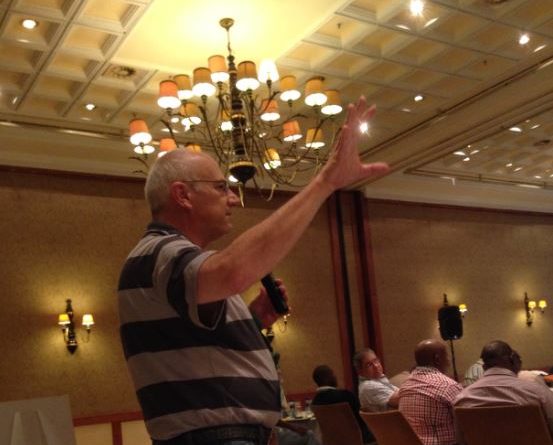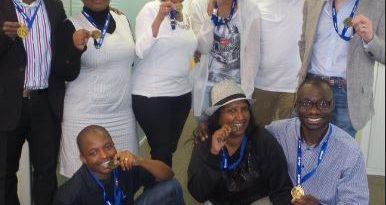JPSA provides Tips for having YOUR voice heard at the Gauteng e-tolls review panel public meetings
Many people have asked JPSA what they should expect out of attending public meetings held by the Gauteng e-tolls review panel and whilst we acknowledge that it is not our place to speak on behalf of the panel, we equally feel that too little information exists in the public domain on this issue.
South Africans are generally not used to participating in democratic processes, beyond making a mark on a ballot paper from time to time and as sad as this fact is, we feel encouraged that some people are now starting to participate and it is in light of this that we feel obliged to provide some guidance on how to do so.
It is no secret that JPSA actively opposes e-tolling, but this post is drafted and attempts to present the information in as unbiased a manner as possible. Our inputs come from both, our understanding of the purpose of the panel and its public meetings, plus our observations from attending the meeting in Orlando, Soweto on Monday 15 September 2014.
Purpose of the panel
The purpose of the Gauteng e-tolls review panel is neither to promote nor to knock e-tolling as a method of building roads infrastructure and the formally appointed panel members thereon have been tasked with assessing the socioeconomic impact of e-tolling in an unbiased fashion. They are receiving inputs from anyone and any organisation with a material interest in either promoting or opposing this model.
Public meetings
The primary purpose of the public meetings is for the panel to hear from ordinary people and representatives of groups of people with a common interest – like NGOs, etc. It is not for political parties to bus contingents of their supporters adorned in party political attire to come and make political ideology or electioneering speeches.
JPSA respectfully asks that the political parties wait for their turn, which has been catered for, to make representations to the panel and allows the public, some of whom may indeed be their supporters, to have their say as individuals.
Your chances of getting having your “voice” heard
Your chances of actually getting hold of the microphone to have your say are dependent on the volume of people who attend these meetings. It stands to reason that the better attended the meeting is – the lesser your chance is of getting hold of the microphone. But that is not all that limits your chances to speak. Some people have taken it upon themselves to deliver lengthy speeches in their quest to have their voice heard.
How much time will you get to speak?
The panel tries to control “microphone hogs” by saying upfront that people should keep their comments to a maximum of 3 minutes but our observation has been that some people choose to ignore this and, even when respectfully asked to wrap up, continue talking long after their time allocation has elapsed. Please don’t do this – it is both, selfish and contemptuous of others whose voices also need to be heard.
If you have a lot to say
If you have a lot to say – and many of us do – then commit your submission to writing and hand it into the panel on your arrival or departure. The panel even supplies a form allowing you to make a written submission, and this is included in the information pack you receive on arrival but we would encourage everyone to author their written submission prior to attending.
Quite apart from the fact that many people do not possess the necessary public speaking skills to get the message across without waffle; a written submission gives you the opportunity to:
- Fully articulate everything you want to say;
- Edit and rework your submission until it represents precisely what you want to say; and
- Present facts and traceable references that is helpful to supporting your argument.
By far however, a written submission guarantees that your voice will be heard, regardless of whether you get hold of the microphone or not. If you wish to supplement your written submission after you have handed it in, you are entitled to do so.
Back your claims up with facts
It is not helpful, nor will it lend credence to your submission to make things up or rely on anecdotal “evidence”. If you are going to make a claim asserting to being a matter of fact, make certain that you provide real and traceable evidence to your claims and assertions or they will most likely be ignored in the final analysis.
Prepare your verbal submission
Before you stick your hand up and get hold of the microphone, know exactly what it is that you want to say. Try to resist the temptation to make it up as you go along and in particular, try to avoid the temptation to then tailor your speech on what another speaker has had to say just because you didn’t think of it ahead of time.
If you have made a written submission, do not read it out aloud. Rather make a separate summary of the key points in your written submission and speak to that. Above all, keep it short, punchy and to the point and leave the waffle and rhetoric out of it. That said; feel free to be as passionate, emotional and expressive about it as you wish.
Address the panel
Much like a court, you are not there to address the public who attend the meetings; you are there to address the panel itself. After all, it is the panel and not your fellow citizens that will draft and submit a report to the Premier of Gauteng, Mr David Makhura at the end of all of the processes. Do not try and solicit support or applause from your fellow citizens. They will clap if they feel like doing so and no-one can stop them.
Keep it decent
If you are fortunate enough to get hold of the microphone, don’t give the panel members a mouthful and accuse them of being “puppets” etc. Similarly, don’t insult anyone whose views differ from yours. If you are angry, direct your anger at those entities responsible for your anger and don’t shoot the messenger.
What the Constitution says
It is a popular notion that the Constitution guarantees everyone’s right to freedom of speech. Unless you are a Member of Parliament, it doesn’t in the sense that many people choose to interpret its provisions. Anything you say can be held against you, particularly if it is defamatory, constitutes hate speech or crimen injuria (offensive language).
Section 16(1) of the Constitution guarantees your right to freedom of expression and is limited by Section 16(2) and other provisions in the Constitution. You should avoid relying on anything you do not fully understand and we encourage everyone to read and fully understand the Constitution.
Are these meetings all a waste of time?
No-one can say for sure whether the Gauteng e-tolls review panel is or is not a waste of time and effort, and indeed, public money, especially in light of the conflicting stances that have been taken and expressed by SANRAL and the Minister of Transport and the Gauteng Provincial Government.
We do not believe that it would be helpful to anyone to automatically assume that the Gauteng e-tolls review panel is nothing more than another Public Relations exercise. Instead, such judgments should be reserved until the entire process has run its course and an outcome has been attained. We encourage all citizens to actively participate in this exercise and have their voices heard and we encourage all those in power to seriously consider what people have to say.
What does JPSA expect out of this process?
In light of everything that has gone before when it comes to e-tolling, we do not expect e-tolls to be summarily scrapped at the end of this process. We also do not expect to get roads infrastructure “for free” as has been suggested by the pro-e-tolling lobby and their propagandists.
What we do however expect is that this matter will finally be put to a referendum asking motorists how they would prefer to pay for roads infrastructure development, thus providing all those who are expected to pay the opportunity to democratically determine their future (and present) financial obligations. Allowing those who are not motor vehicle owners to skew the results of such a referendum would not be a democratic process at all, given the fact that South Africa’s voters roll and vehicle registry do not even remotely resemble one another.
It would be naïve at best for anyone to suggest that the public meetings being held by the Gauteng e-tolls review panel will provide the opportunity to all people to make their voice heard and at the end of the day, everyone affected by this should be given the inalienable right to have their voice heard.
* As stated in the preamble, this post is independently provided by JPSA in the public interest and is not to be interpreted as being sanctioned or commissioned by the Gauteng e-tolls review panel, the Gauteng Provincial government or any entity other than JPSA. If any entity or person wishes to endorse it, they may do so by contacting us. Anyone who wishes to republish it is more than welcome to do so, provided that JPSA is acknowledged therein and it remains in its unaltered form.





